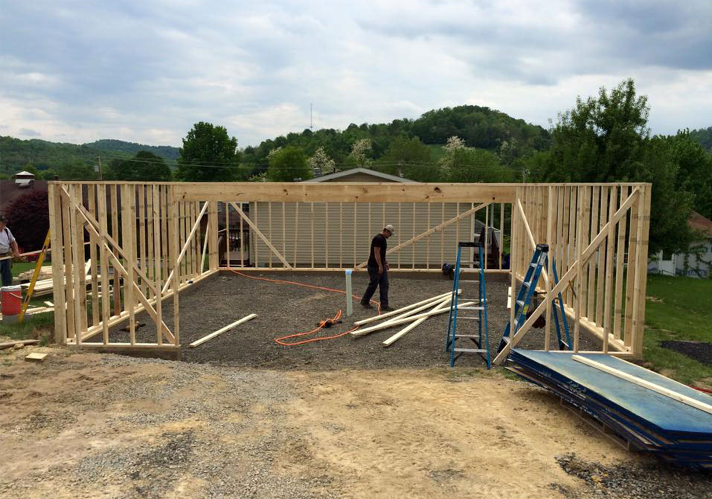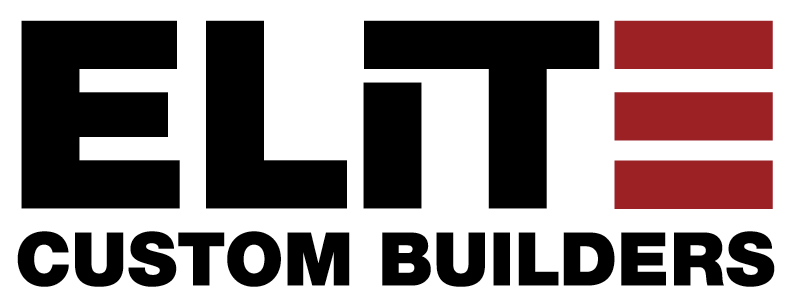When you make an addition or modification to your property, it’s important to ensure you secure all appropriate permits and follow your city’s building codes.
Following building codes is crucial as it means you have access to your local building inspector, who can check that all work meets code standards — keeping you and your family safe.
So how do you know when you need to get a building permit? As a general rule of thumb, if the work is something you may consider hiring a contractor for, you’ll need to look into permits.
- If you’re building an addition or demolishing part of your house
- Moving a load-bearing wall
- Adding doors or windows
- Plumbing jobs (other than simple repairs)
- Electrical work (other than simple repairs)
- Running a new gas line
- Altering the roofline
Read on to learn why building codes are in place, how you can ensure you follow them and how hiring a professional contractor can help save you the headache of securing permits.

WHAT ARE BUILDING CODES?
Building codes guild the design, alteration, construction or repair of buildings — they apply to almost every type of building, whether a school, a house, a retail store or a medical building.
The building codes are set in place to keep people safe and make buildings accessible for their users. For example, an accessible building must have a ramp, electric doors and have hallways and doors that are a specific width.
Failure to comply with building codes could result in fines and hefty penalties. In extreme cases, buildings are demolished if they don’t comply with codes.
Building codes constantly change as new technology and innovations hit the market. The codes also vary in different cities as different geographic areas face varying challenges. Think about when you go to the beach — most of the houses are “on stilts”, or raised up to protect them from severe flooding.
WHO ENFORCES THE BUILDING CODES?
Building codes are enforced by a city inspector who works for your local government. Larger construction projects may be reviewed by a state-level inspector if necessary. When you make the decision to start a project that needs to follow building codes, you’ll apply for a permit.
Once the permit is issued, the building inspector will come periodically to check the work and verify that the work meets the code standards. If it doesn’t pass, the inspector will usually give a set period of time to make the correction. Another inspection will follow.
The size of the project will determine how many inspections are necessary. When building a new home for example, there will be a minimum of six inspections:
- After the foundation is set
- When the rough framing is completed
- When the plumbing, electrical and HVAC is complete
- After the insulation is installed
- After the drywall is put up
- When the home is complete: final inspection and certificate of occupancy
Your city inspector will be able to let you know when you’ll need inspections throughout the course of your project.
WHY ARE BUILDING CODES IN PLACE?
As we mentioned, the primary reason that building codes exist is to protect those using the building. Building codes make spaces safer in the event of a fire and determine how many doors are needed to safely evacuate occupants. They also ensure that electrical and plumbing work doesn’t interfere in a way that could bring water in contact with a live power source. And they help keep buildings functional — did you know that the amount of space in front of a toilet is regulated by a building code?!
Additionally, building codes protect you. If your contractor wasn’t being held to a high standard, you’d be relying solely on their reputation to ensure they do quality work. And while we think reputation is important, the universal standards set in place by building codes help protect you from being ripped off.
Building codes are also an important part of the home buying and selling process. If you don’t have the expertise to know what to look for, it can be hard to know if a creek in the floor is just normal wear or if there is a structural issue. Likewise, if you’re selling a home, it can be beneficial to ensure your home meets building code standards to increase your chances of a quick sale.
SO WHAT IF I WANT TO DO THE WORK MYSELF?
That’s okay — we always advise you proceed with caution and swallow your pride if you realize that you need professional help to complete the renovation safely. If you feel confident starting your project yourself, you’ll need to contact your city building department first. You’ll find the phone numbers for the Morgantown, Fairmont, Clarksburg and Bridgeport building departments below:
Morgantown, WV | 304.284.7401
Fairmont, WV | 304.366.6211
Clarksburg, WV | 304.624.1633
Bridgeport, WV | 304.842.8200
When you call, you’ll need to explain what your project entails. Ask them to send you any information that is relevant to your project and ask about the permits you’ll need. Make sure you understand the codes that pertain to your project so you know that the inspector will be looking for — this will help you prepare.
Note that if you end up hiring a subcontractor, it’s important to make sure they are present at the inspections.
HIRING A PROFESSIONAL CONTRACTOR
When you hire a professional contractor, the stress around managing building permits and meeting codes is gone. You can simply enjoy watching your project come together.
At ECB, we handle the permit process for you and ensure your project always meets building codes. We encourage you to be present at the inspections so you know what’s going on — although it’s not required.
We’ll answer your questions and remain transparent with you throughout the process, giving you peace of mind that your project is being completed by experienced and trained contractors who take pride in their high-quality work.
Elite Custom Builders | Custom Home Builder | Residential Contractor | Bridgeport, WV | Surrounding Areas
We’re happy to talk to you about your project to see how we can help. And if you’re considering building a new home from the ground up — that’s something we specialize in. You can download our free Custom Homes Ebook below to learn more about the process.
ECB works throughout North Central West Virginia, have a combined 70+ years of experience and serve the North Central West Virginia area including:
- Morgantown
- Fairmont
- Cheat Lake
- Clarksburg
- Bridgeport
- Weston
- Elkins
- Davis
- Preston County
- Wheeling
- We also work in the Pittsburgh, Pa., area.
